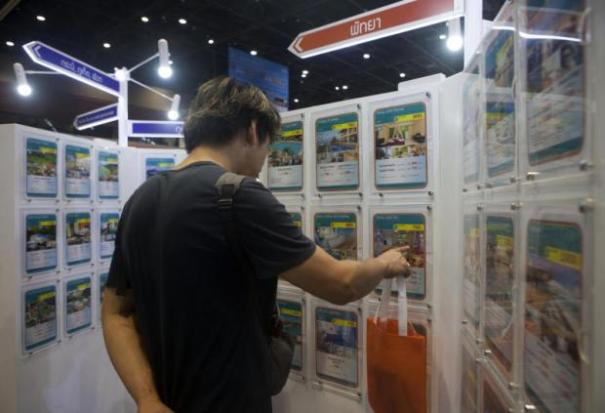Thailand: TAT puts tax plan on hold until 2018
The Tourism Authority of Thailand (TAT) is setting aside its proposed tax deduction for domestic tourism until next year, saying the scheme requires better understanding and collaboration with the Finance Ministry.
The TAT is likely to do a rethink in early 2018 after the Finance Ministry rejected the plan in September over doubts about whether it would boost domestic travel and benefit local communities.
“The TAT is not working on the tourism tax break at this stage, following the Finance Ministry’s refusal, but we hope to resume the plan next year,” said TAT governor Yuthasak Supasorn. “The TAT will look at the details to have a better understanding of the joint effort between tourism and finance bodies.”
Tourism and Sports Minister Kobkarn Wattanavrangkul said earlier she passed the issue to the Finance Ministry for further discussion. Nothing came about as a result.
In August, tourism officials floated the idea of a personal tax deduction of 15,000-50,000 baht for domestic travel expenses, but the Finance Ministry baulked at the idea.
The TAT in the past offered a maximum deduction of 30,000 baht, applied equally at all tourist attractions nationwide. This time, the proposed ceiling was higher at 50,000 baht and applied only to select provinces.
Under the latest plan, those who travelled to first-tier provinces like Chiang Mai, Phuket and Chon Buri would be eligible for a tax deduction of 15,000 baht. If they visited second-tier provinces like Lampang, Loei and Trat, they could get a deduction of up to 30,000 baht. For third-tier provinces like Chaiyaphum, Suphan Buri and Samut Sakhon, the maximum deduction would be 50,000 baht.
Tanasak Patimapragorn, the deputy prime minister overseeing tourism, has said if a tourism tax break is untenable this year, it should be revisited next year.
According to Mr Yuthasak and Gen Tanasak, tourism officials may lower the ceiling for next year’s tax deduction to 20,000 baht.
Nalikatibhag Sangsnit, director-general of the Designated Areas for Sustainable Tourism Administration, has argued that the proposed tax deduction might be ineffective in driving tourism because many small food shops, restaurants and souvenir stores in local communities lack commercial registration. Unregistered business operators are unable to issue receipts.
“I have been saying for years that the tax deduction does not work for local businesses,” Mr Nalikatibhag said. “I believe that major retail operators and big registered operators gain the most from such measures.”
Supawan Tanomkieatipume, president of the Thai Hotels Association (THA), said the tax break as envisioned could hit major destinations like Chiang Mai and Pattaya because tourists would shift to second- or third-tier areas.
“The previous tax break boosted arrivals to major attractions because of no tax deduction gap,” Mrs Supawan said. “So the initiative helped stimulate overall domestic tourism.”
The Tourism and Sports Ministry has announced a national tourism campaign called Amazing Thailand Tourism Year 2018 to support the tourism industry in the coming year.
The campaign will focus on seven tourism categories: sport, gastronomy, marine, wedding/honeymoon, medical/wellness, community-based tourism and leisure destinations.
The Association of Domestic Travel’s 200 members will offer discount packages of up to 50% for tourists who wear Thai traditional costumes while on holiday.
Members will begin selling special offers to tourists in November, focusing on Sing Buri, Lop Buri and Kanchanaburi provinces. Packages for Mukdahan, Lampang and Satun will be added in 2018.
Member hotels of the Thai Hotels Association will offer special rates on rooms, food, drinks and spa services to tourists.
Source: https://www.bangkokpost.com/business/tourism-and-transport/1341675/tat-puts-tax-plan-on-hold-until-2018


 English
English




